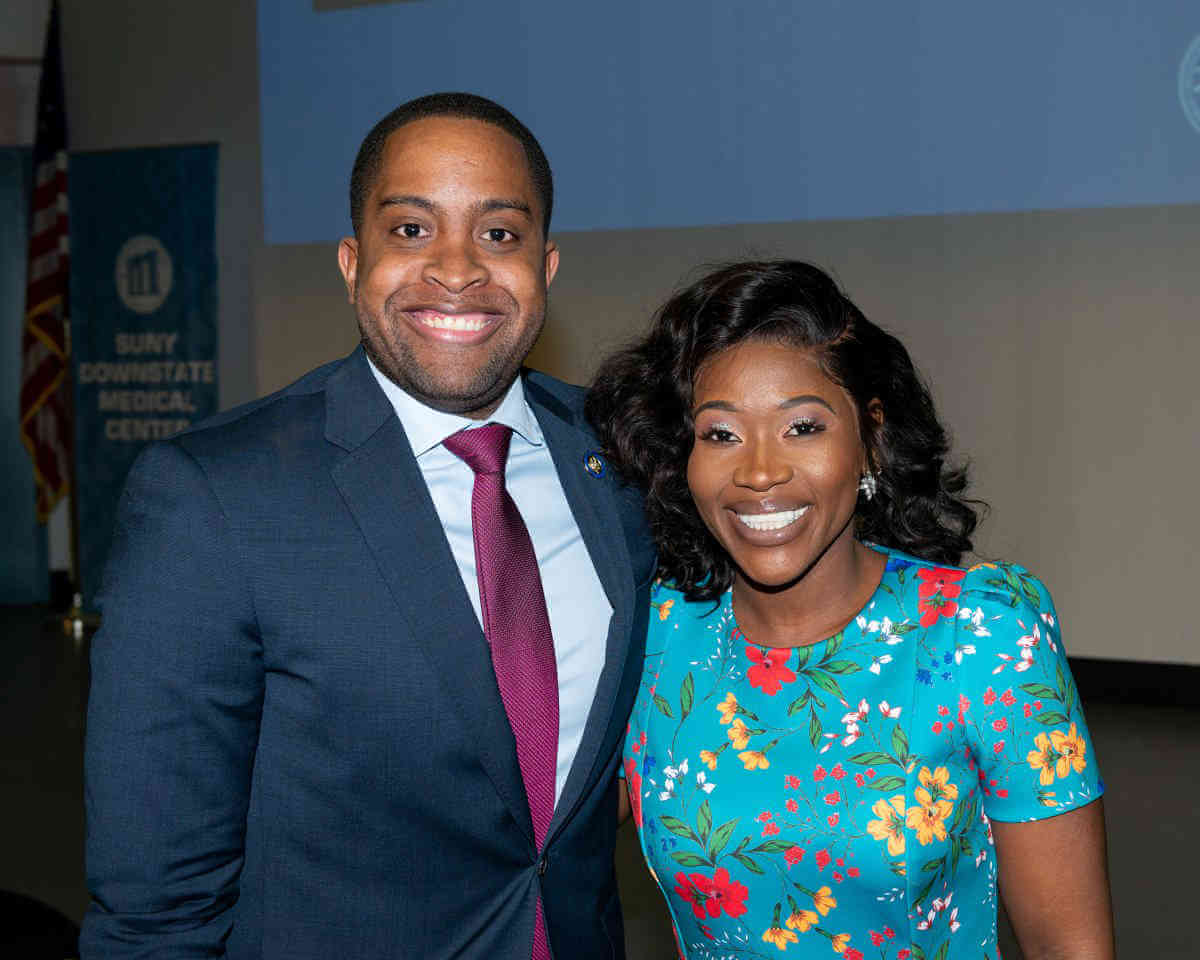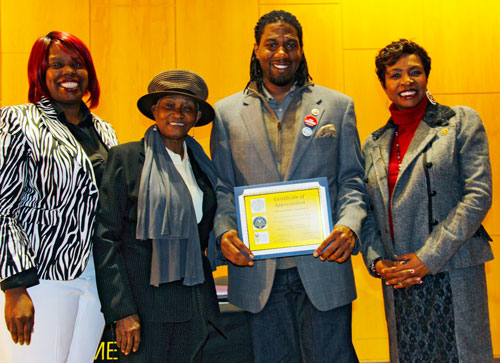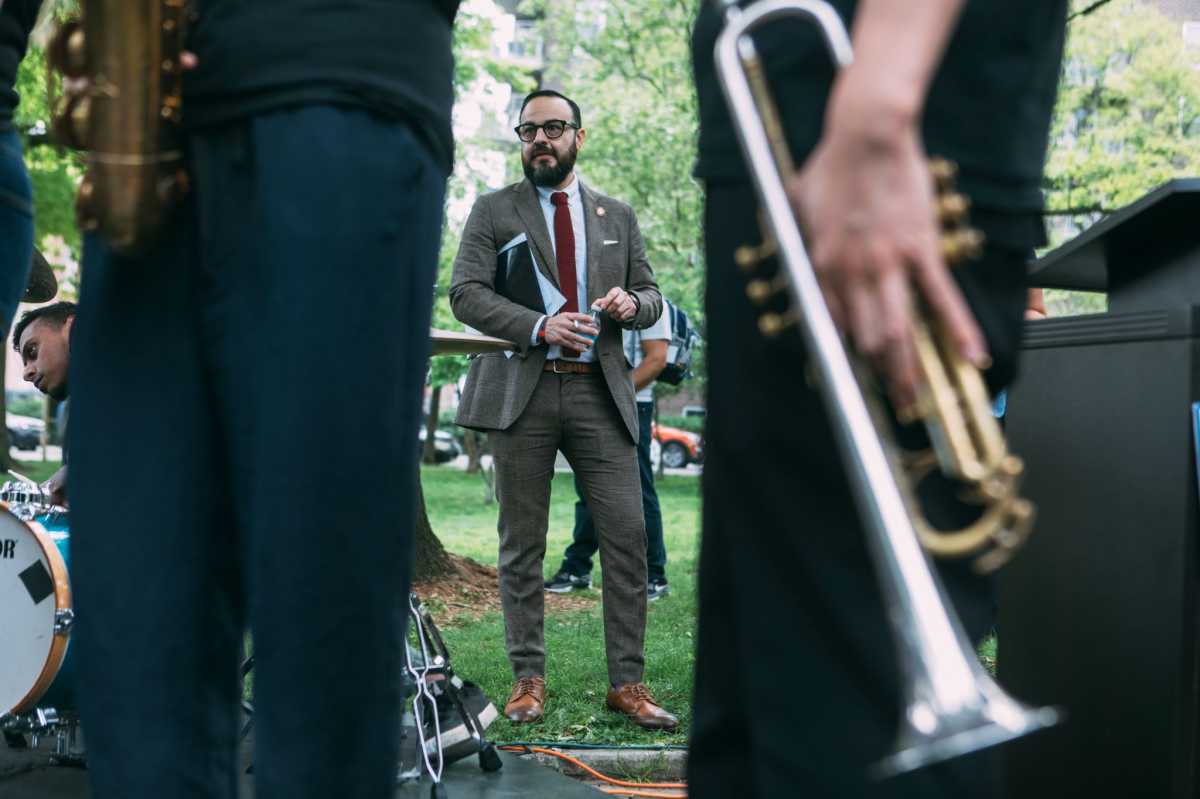Brooklyn legislators Assemblywoman Diana Richardson and Sen. Zellnor Myrie who were expected to collaborate at an event this Saturday, Dec. 14, with New York State Attorney General, Letitia James in raising awareness about rampant deed theft in Brooklyn will now do so on a new date tentatively scheduled for Jan. 11.
“Our homes are being targeted by scammers, but we are fighting back,” said Richardson, representative for the 43rd Assembly District that encompasses Crown Heights in Brooklyn, in an email to constituents.
She said she, Myrie, James and community leaders will “conduct on-the-ground outreach and knock on doors to raise awareness about ‘deed theft’”.
In a separate email, Myrie, who represents the 20th Senatorial District in Brooklyn, said the team is “gearing up for a big day this Saturday.”
“We’re going door-to-door with New York Attorney General Letitia James and Assembly Member Diana C. Richardson to protect our homeowners from deed theft,” he reiterated.
“If you have a few hours to help protect some of the most vulnerable members of our community, sign up to join us,” he added, stating that three shifts will be available: 10:00 am – 1:00 pm, noon – 3:00 pm, and 1:00 pm – 3:00 pm.
In October, the New York Times reported that “a booming real estate market in Brooklyn is fueling a crime that law enforcement authorities say has taken hold in largely African-American neighborhoods that are being gentrified — deed theft, which involves deceiving or sometimes coercing a homeowner into signing forms that transfer ownership of a property.”
In many cases, the paper said a homeowner is made to believe the documents involve some type of financial assistance, but added that “in fact turn out to be the property deed.”
“Bedford-Stuyvesant and Crown Heights, both known for their collection of largely intact townhouses that cost a fraction of what similar homes sell for in Manhattan, have become hotbeds for deed theft,” said the Times, basing the statement on information from law enforcement authorities.
It said homeowners in Prospect Heights, Brownsville and East New York have also been targeted.
Alluding to data from the city’s Department of Finance, the Times said, of nearly 3,000 deed fraud complaints recorded by the city since 2014, 1,350 — about 45 percent — have come from Brooklyn. The borough accounts for roughly 30 percent of the city’s housing units, the paper said.
“It’s just a drop in the bucket,” it quoted Eric Gonzalez, the Brooklyn district attorney, as saying at a recent town hall meeting in Bedford-Stuyvesant. “It’s really hot in the real estate market in Brooklyn. People want to steal our homes.”
Those orchestrating the schemes often hide behind limited liability companies and shell companies, making it difficult for homeowners to determine if they are being swindled and by whom, said the Times, adding that even though rising property values in neighborhoods like Bedford-Stuyvesant have provided homeowners with more equity, many remain cash poor.
“As they grow older or lose a spouse, their homes can accumulate liens stemming from unpaid property taxes or water and sewage charges, making them vulnerable to fraudsters who often search public records to identify homeowners under financial stress,” the paper said.
James told the Times that “deed theft has become a common tool of career criminals and unscrupulous real estate developers to illegally obtain real estate, most often with the goal of selling it at a huge profit in high-demand housing markets.”
The Times said some homeowners may not even know that their deeds have been stolen.
It said documents proving the sale of a property are recorded by the city registrar’s office, “but not necessarily checked to ensure that they are legitimate,” adding that “owners might continue paying the mortgage for a property they no longer own.”
In addition, the paper said recovering a home whose deed has been illegally transferred can be difficult, “unless there is clear proof of wrongdoing, like a forged signature.”
It said it is also challenging to determine whether the person had entered a bad, but not necessarily fraudulent, financial deal.
“It’s often a very hard line to straddle,” said Noelle Eberts, a lawyer at the New York Legal Assistance Group, told the Times.

























